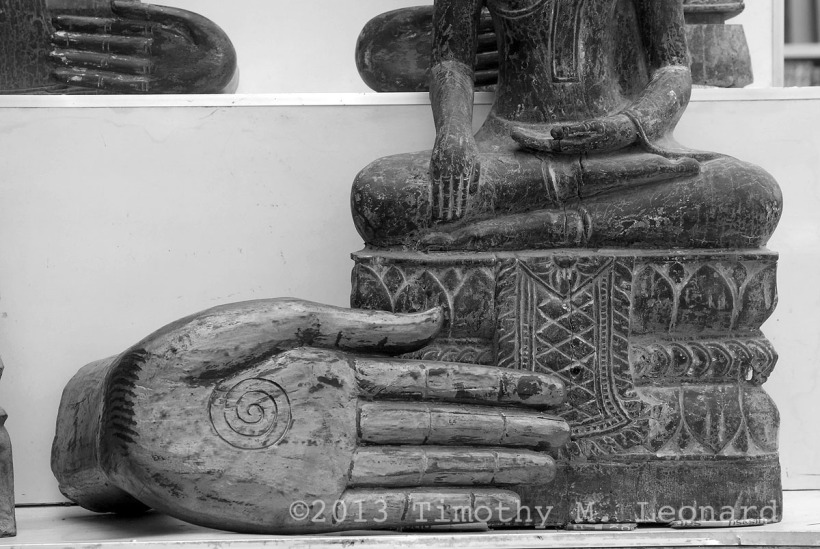gestures use me
 04.20.2014 |
04.20.2014 |  tm leonard
tm leonard Shhh. I have a new secret lover while Thorny is in OZ. I am easy going with a willingness to share honest emotional moments. No commitment is a concrete-abstraction. My passion is immediate visual truth. My eyes are sensory awareness. I see voices. I am a voiceless one, quivering lips and tenacious touch with my secret lover.
I would rather be a tiger for one day than a sheep for a thousand years.
My sexual joy is shy. I dance tactile tenderness in silent breath.
My unfinished symphony lives with visual touch holding his small kiss on my spine. I do this because I love it. It is my heart-mind fate.
My tender lover comes to me in the heat of the day. He is kind. I welcome him with smiling eyes, gesturing a finger on lips, shhh.
He brings me luck. You can’t see it, measure it or hold it. I feel it.
My passion is deep and strong. My unlimited languages speak eyes, smiles, and hands. Gestures create us in space. Gestures use me.
My speech voice is missing. I make rolling guttural sounds expressing metaphors, similes, intonations, frequencies, meaning, sensation, time, space, ideas, dreams, relationships, secrets, my traditional family values, fear, passion, and joy.
By the time I learned the alphabet it was late in life toward primordial dusk. It was late in the moment before then and now. I am a long now.
It was late in the whisper of silent air singing from the trash collector’s plastic bottle. He pulls his rolling cart filled with cardboard. A muscular rhythm stirs somnolent dust on broken stones. The majority of people here exist on less than $1 a day. Rich land, poor people, greedy corrupt politicians.
I see, said a blind girl playing a cello in a demined cemetery. The more I see the less I know. You can’t step in the same river twice.
Possibilities and probabilities, chance and coincidence flutter from my finger fragments like butterflies. Unknown mysterious sensations fling from my signing hands. Fingers and hands are language extensions. Blossom being.
My lover visualizes me in tropical brown skin toned worlds. He imagines I join a hearing impaired community, get an education and a real life. He’s a dreamer.
I jump ahead in my story. It won’t happen. I am a slave.
He realizes my movements say I was born to dance.














